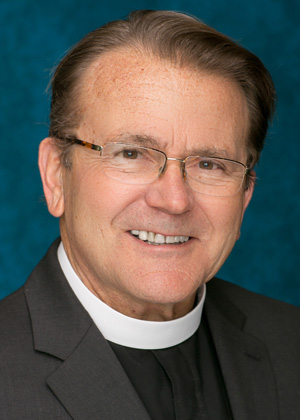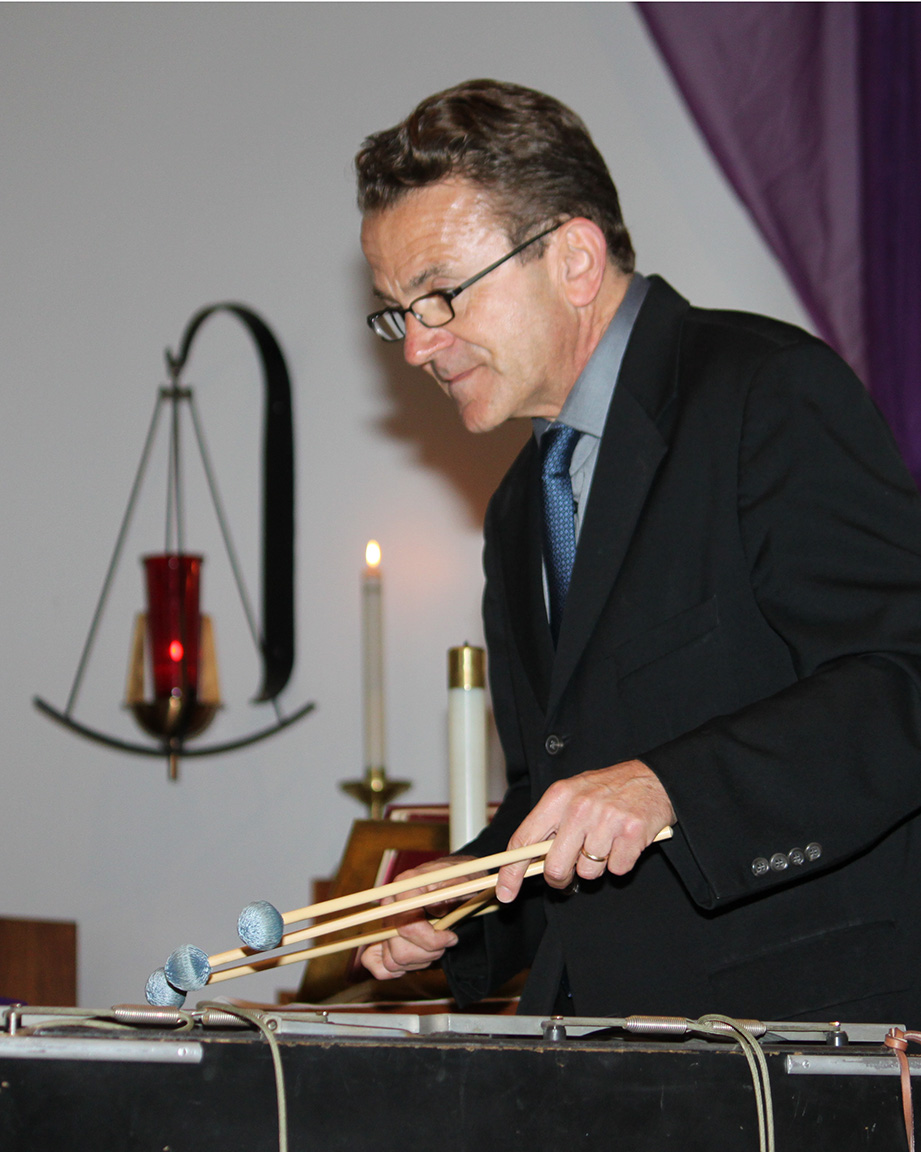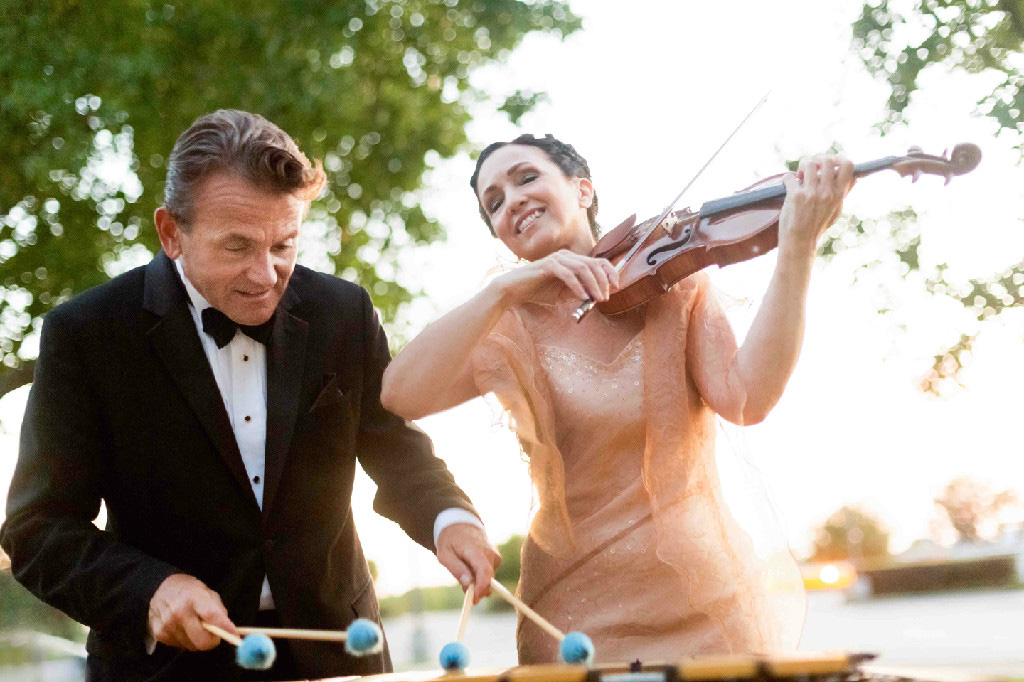
Norman Freeman
[The Episcopal News] The Rev. Norman Reid Freeman Jr., a Juilliard-trained, Grammy Award-winning percussionist and timpanist who performed with the New York Pops and New York Philharmonic and with artists ranging from Barbra Streisand to Metallica and Pavarotti, and who popularized jazz vespers while serving congregations in the Connecticut and Los Angeles dioceses, died Feb. 4 in Santa Ana after a long illness. He was 71.
Survivors include his music and life partner, Katherine Cash, with whom he founded the N2K duo and with whom he served as artist-in-residence at St. John’s Cathedral, Los Angeles; St. Alban’s, Westwood; and St. James’, Newport Beach; a daughter, Bridget Anne “Brady” Freeman; a son Christopher (Shawna); and two grandchildren, Cash and Brody.
A funeral will be held at 3 p.m. on Saturday, April 6 at St. John’s Cathedral, 514 W. Adams Blvd., Los Angeles 90007. Bishop John Harvey Taylor will preside.
Born on May 2, 1952, in Orange, New Jersey, Freeman’s love of music filled his life. An only child, he began playing the vibraphone at age 16, switching from drums and studying with a prominent percussionist in New York City. Eventually, entering sobriety led him to blend music and ministry, Freeman wrote in a Dec. 7, 2022, autobiographical essay.
“During my period of early sobriety, I was named chair of the percussion department at Mannes” School of Music in New York City’s The New School’s College of Performing Arts, he wrote. “I became enthusiastic about the people and spiritual connections created through music, introducing spiritual connections through music to students.”
“Norm wove the threads of faith and vocation together so beautifully, locally, and globally,” Bishop Taylor said. “Hundreds will remember him as a devoted, deeply pastoral parish priest.

Norm Freeman performs on the vibraphone at a healing service at St. Francis’ Ministry Center, Riverside, in 2012. Photo: Janet Kawamoto
“Then he had his ministry of musical and liturgical innovation that touched thousands and his musical outreach to the world that reached millions. I’ll never forget his kindness, our conversations about his devotion to his family and his sobriety, and his courage in battling for heath and wholeness in the face of disease across so many years.”
Freeman was a Yamaha Artist with endorsements from Paiste Cymbals, Malletech, and Alternate Mode, the maker of MalletKAT. He was a founding member of the Norm Freeman Quartet, a jazz ensemble that performed in local churches across Southern and Central California. He also served as music director and spiritual advisor for The Episcopal Church’s “MiX,” “Music in Christ” project, responsible for the creation and recording of new music resources for liturgy that were composed by teens and young adults.
Freeman and Cash, a Juilliard alumna and award-winning violinist, as N2K performed “Soul Break” musical sessions, and jazz vespers, intent upon strengthening and inspiring communities through music. Soul breaks were “part playing, part praying,” Freeman told The Episcopal News in the Spring of 2012.
“We don’t ask anything of the people who come to hear us,” Freeman said then. “We just want to bless them with our music. I have friends who describe themselves as agnostics, as atheists, yet they come and hear us play. We don’t say Jesus Christ, God, faith. We don’t say religion. We don’t ask anyone to follow a bulletin. We don’t ask them to follow a program, to stand up or to sit down.”
While serving at St. George’s, his sermons were frequently improvisational music intended to inspire. “I started to think of playing music in very spiritual terms,” he told The News. “I found it deepened my own spirituality, a growing sense of connecting with God through the great music I was hearing. I started to realize that on my own, I could go but so far. I came to depend on a power much greater than myself to fuel my performances.”
Wearing his collar as he performed pushed against stereotypes, he said then. “I was really fortunate because I went to an excellent seminary. I got a classical education. I learned the rules. But it’s fun to push on them a little. I suppose bringing the jazz into some churches would be bending a little bit … I think it’s helpful to break people’s stereotypes, give them an opportunity to think a little, to be even a little suspect of their own stereotypes.”

Y2K – Norm Freeman and partner Katherine Cash – perform.
He earned bachelor and master of music degrees from the Juilliard School, as well as an M.Div. from the General Theological Seminary in 1997. After his seminary graduation, he began a jazz vespers while a curate at St. Paul’s Church in Riverside, Connecticut (1997-2000).
He was ordained a deacon May 3, 1997 by New Jersey Bishop Joe Morris Doss and a priest Nov. 15, 1997 by New Jersey Bishop Suffragan Vincent King Pettit.
His dual music and ministry roles were noticed by the New York Times and other publications. He performed with folk singers Peter, Paul and Mary, famous operatic sopranos Jessye Norman and Kathleen Battle, and former Beatle Paul McCartney. His list of accomplishments included multiple tours with Barbra Streisand, numerous Broadway shows and other acts, and inclusion on the Grammy Award-winning New York Philharmonic recording of Gustav Mahler’s “Symphony No. 3 in D minor” conducted by Leonard Bernstein. He performed on four Grammy-nominated projects.
In addition to St. Paul’s Church in Riverside, Freeman also served as Episcopal chaplain for the University of California at Santa Barbara and as vicar of St. Michael and All Angels in Isla Vista (2000 – 2006) and rector and headmaster of St. George’s Church in Laguna Hills (2007-2014). He retired in 2014 after receiving a prostate cancer diagnosis.
After his 2013 diagnosis, Freeman said incorporating sobriety helped him face his own mortality. “Our program teaches us to have faith and to keep moving forward,” he wrote in the autobiographical essay. “Twelve-Step Programs point out that the gyroscope of serenity takes acceptance and wisdom. Only then can one call up courage inside oneself and regain our balance. I knew I needed ‘to accept life as it is, not as I would have it.’ Rather than living in cancer’s finite world of obsession and fear, I changed my attitude. What followed was a profound change in the course of my life and shift in my mind.”
